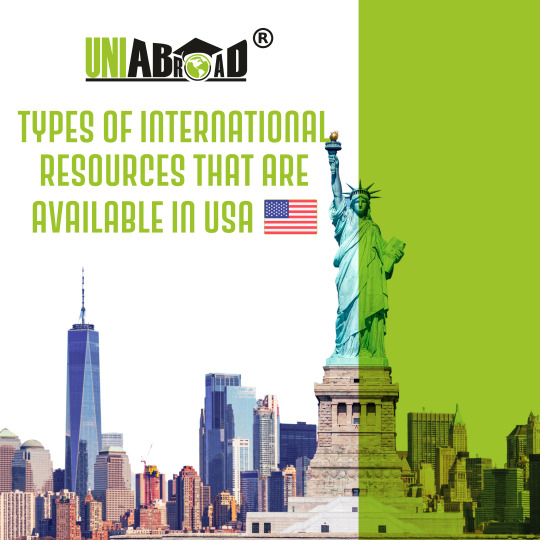Text
The IELTS Speaking test will evaluate your ability to communicate in English. The test will take between 11 and 14 minutes and will consist of you discussing a range of subjects with an IELTS examiner. Your examination will take place in a quiet room with an assessor who will urge you to talk as much as possible. The Speaking test is divided into 3 sub parts.
Part 1
The assessor will ask you broad questions about yourself as well as a variety of common themes including home, family, career, studies, and interests. This segment lasts for 4 to 5 minutes.
Part 2
You will be handed a task card and asked to speak on a certain topic by the examiner. You will be given one minute to prepare prior to actually speaking for up to two minutes.
Part 3
In Part 2, you will be asked additional questions about the topic. These questions will help you to talk about more complex concepts and concerns. This section of the test lasts 4 to 5 minutes.
Ready for some speaking practice? Looking for some IELTS Speaking topics? Don't worry! we've got you covered.
1. Let’s speak about where you grew up. What is the location of your hometown?
2. What is the most well-known feature of your country?
3. Do you currently have a job?
4. Is what you do for a living something you enjoy?
5. What was it like on your first day at work?
6. What has changed in your hometown over the ages?
7. What are some of your favourite television shows?
8. What types of novels do you enjoy reading the most?
9. What part of your life does the Online world play?
10. Are there any drawbacks to using the Internet?
.
.
.
.
#ielts #ieltspreparation #ieltsspeaking #ieltsvocabulary #ieltswriting #ieltstips #ieltsreading #ieltslistening #ielts_tips
#The IELTS Speaking test will evaluate your ability to communicate in English. The test will take between 11 and 14 minutes and will consist#Part 1#The assessor will ask you broad questions about yourself as well as a variety of common themes including home#family#career#studies#and interests. This segment lasts for 4 to 5 minutes.#Part 2#You will be handed a task card and asked to speak on a certain topic by the examiner. You will be given one minute to prepare prior to actu#Part 3#In Part 2#you will be asked additional questions about the topic. These questions will help you to talk about more complex concepts and concerns. Thi#Ready for some speaking practice? Looking for some IELTS Speaking topics? Don't worry! we've got you covered.#1. Let’s speak about where you grew up. What is the location of your hometown?#2. What is the most well-known feature of your country?#3. Do you currently have a job?#4. Is what you do for a living something you enjoy?#5. What was it like on your first day at work?#6. What has changed in your hometown over the ages?#7. What are some of your favourite television shows?#8. What types of novels do you enjoy reading the most?#9. What part of your life does the Online world play?#10. Are there any drawbacks to using the Internet?#ielts#ieltspreparation#ieltsspeaking#ieltsvocabulary#ieltswriting#ieltstips#ieltsreading
0 notes
Text
Challenges & Solutions of Studying Abroad
Many people think that going abroad will be as cool as any other type of travel: enjoy, eat and have fun. But studying abroad is not a holiday. This is real life. The cost of dining at restaurants will eventually add up, prolong your sleep during late night class and the overall pace can make you run into ruins. Even if you do well, you will find that studying abroad has its ups and downs, which affect you day by day - sometimes intensifying.

The Language Barrier
The main problem abroad is the language barrier. Living in a country where no one speaks your language can be very different.
difficulty in communication are a fact of living abroad and making sense of Abroad ' lifestyles. This means that many students studying abroad can feel deserted.
You can let this put pressure on you or you can see it as a learning opportunity.
Cultural Differences
In addition to the ideological barrier, there also be Culture difference. Every country has its own believe and you may not fit to integrate. This can be especially difficult when you live with roommates. Your roommates' behaviour may seem strange and nasty, but these behaviours are quite normal in your new home.
You suddenly look up and feel very lonely. You are surrounded by other people and your appearance, your fashion, your inability to communicate in the language of the country or your general appearance is definitely... different. You Never Felt so Uncomfortable before
Finances–Running low on cash
Despite all your efforts to plan, budget, and track your spending throughout the semester, you may have spent too much this one weekend. No one can blame you for managing your double-digit bank account.
Like all students, you will have a hard time controlling your finances from time to time. If you live abroad, it can be difficult to reconcile your living expenses and your study expenses. Worries about your fund can make you feel lonely or stressed.
Academic Difficulties
Honestly, you might be in trouble when it comes to starting classes at your new college or university. The language barrier itself can contribute to this challenge, as you may be taking your courses in a language you don't even understand until the first word.
Homesickness
We've already mentioned homesickness, but it can be a real problem for many students abroad. You live thousands of miles away from your friends and family, which makes you feel isolated. Universities around the world are facing the problems of students' homesickness, which shows how widespread the problem is.
But then again, feeling at home is perfectly healthy and normal, just don't let it become a crippling part of your experience abroad. Your support network is still there!
Time zone annoyances
Adapting Between two time zones on opposite world can be really frustrating. You have to Very frequently check time is appropriate for each time zone and make a habit of calling early in the morning or late in the evening.
Getting used to currency differences
Getting used to the currency difference is also a difficult process. For example, in Costa Rica, you need to remember that 500 Costa Rican colons is equal to one dollar. And in continental Europe, you have to remember that anything that costs €1 is actually $1.40.
As with most foreign learning challenges, currency differences are something that won't really hurt you if you only stay for a short time, but if you stay at least a semester or longer it's a big deal. have an impact on.
Wanting to stay forever
Now You just Love with the Place – You Love each and everything about that place.. More importantly, you love yourself living here. Fearing the thought of returning home, you feel more confident and confident than ever. As theVery fmous says, every good thing comes to an end.
Solutions to study abroad challenges
How to Overcome with Language Barrier During Your Study Abroad
The best thing to do is to practice more before starting your studies. Also, don't feel shy to ask the locals. They are eager to help you. ,
We also recommend using some online Platform to Overcoming the language. Duolingo offers a very convenient language learning program, while Grammerly or similar programs help you translate sentences or check for grammatical errors.
How to Handle Cultural Differences studying Abroad
Try to become familiar with local cultural norms and terminology. If you do not speak the native language of the host country fluently, create a translation dictionary or fill your smartphone with foreign language applications. Search For groups ask for them , About countries
Join Groups and ask for advice.
Ultimately, you shouldn't let the fear of being insulted or spoken inappropriately deter you from interacting healthfully within the host culture. You will learn with time, and if you are patient with yourself.
How to Handle Finance Challenges studying abroad
• Keep an eye on scholarships that will help you. There are lots of scholarships opportunities open to international students studying abroad
• Depending on your study abroad laws, you may be able to work part-time. Try to get a job that you can consolidate into your studies.
• Prepare your meals instead of buying takeaway food.
• Save the cash for emergencies, because you'll be happy when an unexpected bill arrives.
#study abroad#studyabroad#studyabroadlife#student#studyforlife#studywithme#studygram#studies#studying
0 notes
Text
instagram
The study abroad route for students is often chosen by those that wish to upgrade their skills and expand their career prospects. Among the many courses abroad offered, there are those that help graduates earn hefty employment packages after they complete their courses. Here are these top courses that have high employability prospects for graduates.
Reach out to us for more details about studying abroad.
#salary#salaryday#salaryman#civilengineering#civilengineer#mechanicalengineering#mechanical#mechanicalengineer#mechanicalengineers#cybersecurity#cybersecuritytraining#mba#datascience#datasciencejobs#reelsindia#reelsofinstagram#trendingnews#Instagram
0 notes
Text
The first week at the university can be chaotic and nerve-wracking! Probably the hardest part is getting adjusted to a new culture and new rules. But, luckily, there are some helpful tips out there that can help you survive that first week of university.
.
.
.
.
.
#firstweek#university#universitylife#universitycity#universityplace#clubs#clubsound#events#eventspace#budgethomes#budgetliving#uniabroad#uniabroadindia
0 notes
Text
Which European Country Teach in English?
If you want to study in English, you will naturally first think of general English-speaking study destinations – the UK, US, Canada, Ireland, Australia, New Zealand, and South Africa.

Many of these popular English-speaking study destinations err on the expensive side, especially for international students. If you're concerned about cost, or just like the idea of studying somewhere different, read on for a selection of alternative destinations where you can study abroad in English.
Europe
Europe is fast becoming a top region to find study programs in English, even in countries where English is not the local language. If you are a citizen of the European Union, you can get a free university education with all your lectures taught in English - in almost half of all European countries, such as Denmark, Austria, Norway and Greece.
Fees are higher for non-EU students, but still comparatively low compared to other popular study destinations. English-taught courses were few and far between as recently as 2009, particularly at the undergraduate level, but the number of English-taught undergraduate degrees available has increased fifty-fold since then.
Germany
About 56 percent of Germany's population speaks English (especially among the younger generation), and there are many programs available for study in English, especially at the postgraduate level. If you want to study at the undergraduate level, it is hard to find courses taught in English.
There are no tuition fees for undergraduate degrees at public universities in Germany, with the exception of universities in the state of Baden-Württemberg, where non-EU students are now required to pay fees of €3,000 (~US$3,360) per year. is required.
If you received your bachelor's degree in Germany, master's degrees are also free, while PhD courses are also often either free or very low cost. Private universities in Germany will charge tuition fees, but these are often below the international average.
The Netherlands
If you want to study in English in the Netherlands, you won't have to struggle to communicate with the locals – 90 percent of Dutch residents are English speakers. There's also no shortage of English-taught courses - more than 2,000 are available, most of which are master's degrees. The government agency Study in Holland has a study finder that will help you find your perfect English-taught curriculum at any level of study.
Although tuition in the Netherlands is not free, fees are much lower than average for English-speaking countries, especially if you are from the EEA/Switzerland/Suriname, as you will pay €2,087 per year for most courses in 2019/20. , If you are not from these locations, you will pay at least €6,000 (~US$6,700) per year depending on your subject and study level.
Austria
Teaching in Austria is mostly conducted in the country's official language, German, but there are about 260 programs available in English at various study levels - the Studyenwahl website has a search tool that will allow you to learn more about what is taught partly or wholly in English. Helps in finding courses.
This is one more country (73 percent) of English speakers. Higher education is free for Austrian citizens and EU students. Students from Non-European countries can pay €726.72 (~US$815) per semester.
Greece
About half of Greece's citizens can speak English. While teaching at universities is mainly in Greek, there are also specialized study programs in English available at both the undergraduate and postgraduate levels. Again, tuition fees for domestic and EU students at the undergraduate level at public universities are free, while students from non-EU countries will pay around €1,500 (~US$1,700) per year, often including course textbooks. .
Scotland
If you are an EU national interested in studying in the UK, but not keen on higher tuition fees, you may prefer to consider Scotland, as there is no tuition for students from Scotland or elsewhere in the EU There are no fees (except for students in the rest of the UK).
Although Brexit may affect this, it has been confirmed that from 2019/20 EU students starting a degree in Scotland will be able to study for free for the duration of their course. Scotland is predominantly English-speaking, but also has two recognized regional languages, Scottish Gaelic and the Scots language.
Russia
Russia is another country that offers a wide range of English-taught programs as well as 15,000 government scholarships aimed at attracting more international students. However, there are very few English speakers here, about five percent of the population (although this will vary by region; cities like Moscow and St. Petersburg have higher proportions of English speakers), so it's a good idea to learn some Native Russian to help you.
Denmark
Although most teaching at Danish universities is conducted in Danish, more than 700 internationally recognized programs are taught in English, and 86 percent of the country's residents can speak English. You can find study programs in English through the Study in Denmark website. Danish universities are free to attend for all EU/EEA/Swiss students at all levels.
If you are from outside the EU/EEA, you will need to pay fees, which cost an average of €6,000–16,000 per year (US$6,750–18,000).
Sweden
Another country with a large number of English speakers, Swedish universities offer more than 860 programs in English. The university is almost free for Swedish and citizens of EU countries. However, non-EU students pay fees. These are determined by each university; You can expect to pay between SEK80,000 and SEK190,000 (approximately US$8,600-20,500) per year depending on your subject and degree level.
Finland
Finland is another destination worth studying abroad in English. Finnish institutions offer over 400 courses in English, and there is no tuition fee for EU students. Non-EU students pay tuition fees of approximately €5,000–20,000 (~US$5,900–23,550) per year.
Again, many of the citizens (70%) of this country are English language speakers. English language courses are more common in universities of applied sciences and polytechnics, and only a small number of English-taught courses are available at the bachelor's degree level at ordinary universities.
Norway
The only Nordic country that continues to offer free tuition to all students (regardless of nationality), Norway offers a good range of English-taught programs, primarily at the master's level, and most residents know English.
The University of Oslo (the country's highest ranked university in the QS World University Rankings® 2019 ranked 135) has a wide range of English-taught programs at all study levels. You will still have to pay a student welfare organization fee each semester, which typically does not exceed NOK600 (~US$70).
0 notes
Text
Thank you @___.napster.___ for these kind words. We are here to help you feel secure in every stage of your study abroad journey. . . . . . . .
#uk#ukstudy#ukuniversity#belfast#belfastcity#queensuniversitybelfast#queensuniversity#electronics#masters#mastersprogram#viralvideos#viral#viralpost#viralvideo#explorepage#explorer#trendingreels#trendingtopic
0 notes
Text




If you are going to study in the UK for more than a few months, opening a bank account is a good idea. You can use it to pay your rent, take care of your tuition fees or manage other daily expenses without incurring any extra charges.
So, we've got everything you need to know about how to create an international student bank account in the UK, including the documents you'll need.
Swipe ➡️ to Know More.
#uk#bank#banking#bankaccount#bankstatement#uktravel#onlinebanking#onlinebank#account#bankaccounts#uniabroad#uniabroadindia#saving#savingmoney#savingaccount
0 notes
Text

Indians don't settle for less- we always look for incredible opportunities and studying abroad can be this life changing opportunity. International education continues to be valued globally not just for the quality standards but for an incredible opportunity to be a part of the competitive global community.
Let’s drive inspiration from these students who traveled abroad for studies and today are listed among the most accomplished people in the world.
#indian#indianinspired#ratantata#sundarpichai#indranooyi#satyanadella#motivation#motivational#motivationiskey#motivationalposts#unaibroad#uniabroad_india#motivation💯#motivationalmoments#dailymotivation
0 notes
Text
instagram
Thank you @druthik_diwakar for these kind words. We are here to help you feel secure in every stage of your study abroad journey.
.
.
.
#oxfordbrookes#oxfordbrookesuniversity#uk#uklife#studyuk#trendingreels#trendingnow#explorepage#explorepage✨#reelsinstagram❤️💯#uniabroad#uniabroad_india
0 notes
Text
instagram
Get yourself secured with the top global admissions, right from the comfort of your home! ✅🔥
Gear up folks, here is your opportunity to interact with our expert one-on-one about all that Germany has to offer to its International students.
Join our UniLive Q&A session this Saturday.
*Date : * 17-Sep-2022
Time: 4:30 pm IST
Venue: UNIABROAD YouTube Channel
Speaker: Namita S ( Head Counsellor - Germany)
Click Here to Register For FREE
https://forms.gle/MMujpsfXTN4bZfLf6
Click on “Get Notifications” to get reminded.
Don't miss out on this incredible opportunity!⏳
#livesession #session #sessions #germany #germany🇩🇪 #germany_insta #unilive #uniabroad #uniabroad_india #studygerman #studygermany #questionsthatneedanswers #questionsandanswers
0 notes
Text
instagram
De Montfort University @dmuleicester is one of the top public universities in Leicester, the United Kingdom that welcomes hundreds of International students every year for one of its 300 courses at foundation, undergraduate and postgraduate levels.
Swipe right to know more about this dynamic institution!
#demontfortuniversity#demontfort#businesscourse#university#universitystudent#studyinuk#uk#computing#courses#course#uniabroad#uniabroad_india#Instagram
0 notes
Text
What is the best city in Germany to study in? Yours 👇 Queries What is the best city in Germany to study in? What is the cheapest city in Germany for international students? Where do most students live in Germany? Which city in Germany has more job opportunities? Which is the cheapest city to live in Germany? Which city in Germany has more job opportunities for international students? When it comes to international education, Germany has a lot to offer. If you're an international student looking to broaden your horizons, look no further than these 5 cities in Germany that offer diversity, culture, and a friendly environment.
#What is the best city in Germany to study in?#Yours 👇 Queries#What is the cheapest city in Germany for international students?#Where do most students live in Germany?#Which city in Germany has more job opportunities?#Which is the cheapest city to live in Germany?#Which city in Germany has more job opportunities for international students?#When it comes to international education#Germany has a lot to offer. If you're an international student looking to broaden your horizons#look no further than these 5 cities in Germany that offer diversity#culture#and a friendly environment.#germany#Europe#Europetravel#shortsyoutube#shortsbeta#viral#shorts2022#munich#shortsviral#shortsfeed#shortsvideos#WhatisthebestcityinGermanytostudyin#WhatisthecheapestcityinGermanyforinternationalstudents#WhichisthecheapestcitytoliveinGermany
0 notes
Text
If you're an international student looking to broaden your horizons, look no further than these 5 cities in Germany that offer diversity, culture, and a friendly environment.
#germany🇩🇪#germany#Europe#Europetravel#Reels#Reelsinstagram#Reelsviral#Reelstrending#Reelsvideos#Reelskarofeelkaro#Explore#Reelsofinstagram#Instareels#Reelsdaily#Reelstrens#reelitfeelit#reelinstagram#reelitfeelit❤️❤️#reeltoreel#reelstrending#reelsviralvideo❤️❤️❤️❤️#reelsinstagram😍#reellovers❤️
0 notes
Text
How to Study Abroad after 12th From India?
We have different complex concepts about studying abroad. While some consider it expensive, some think that they may never meet the eligibility criteria. Yet, these are never real challenges. Following the proper steps for a college application can help students get admission to colleges or universities abroad. Pre-planning is essential for the candidate to maintain an excellent record in his/her high school years. Most universities check the performance of the students in the 9th, 10th, 11th, and 12th exams. Interest in extra-curricular activities plays an important role in college admissions. Participation in competitions, voluntary projects, and other such activities boost the student profile.
These non-academic activities help the students to make an effective Statement of Purpose (SOP). These activities ensure that the university properly values the potential of the students.
Research is a key component of the application process. Students need to resolve the conflict of choosing a suitable stream. Before choosing a subject for education abroad, students need to understand some points about themselves and their choice.
They should understand their area of academic interest and the future aspects of their education. They also need to understand the job opportunities and salary benefits that they get after education. After considering all these features, they have to decide which course they should choose.
Courses are chosen by students in the early years of their career matter a lot.
Since they invest most of their time and money in their first degree, they need to choose it wisely. Apart from this, they also have to keep in mind the duration of the course. In some countries, only 4-year courses are available for a bachelor's degree.
Selecting a university to study abroad after the 12th is one of the most important steps in a learner's foreign trip. Before taking a final decision, students must know about the location of their dream university, scholarship grant, fee, availability of courses, environment, campus placement, eligibility and admission process.
How to study abroad after 12th from India? The answer is simple. To secure a seat in a college or university abroad, students have to pass through the entrance gate. Be it IELTS, SAT, or ACT – admission is required for students to be eligible to go abroad for higher education.
The admission process varies from country to country. It also relies on the university and its criteria. The primary task of the students is to translate and authenticate and scan the required documents and mark sheets. Students need to keep themselves safe to ensure a smooth admission process. Receiving a letter of recommendation and drafting a statement of purpose comes next.
Filling out their admission application form, attaching the documents, and paying the admission fee is the next part of the process. There are always separate interview rounds for shortlisted candidates in reputed schools or universities. Students can Devise their interviews with experts. Basically, Interview is taken to test Communication, confidence, and attitude toward their goals in academia
Once admission is confirmed, the student visa application comes as the next step. To be able to apply for a student visa it is necessary to have an offer letter from an accredited school or university in that country. Scheduling the interview, making a passport, or residential proof like a bank statement, acceptance letter with ID card, and receipt of payment of application fee are some of the important steps that a student must go through during the visa application process.
for more information kindly contact
0 notes
Text
youtube
In this video, Manjesh Yadav shares his journey along @UNIABROAD about how he has been accepted by the UNIVERSITY OF LIVERPOOL, UK. @UofLTube MANJESH YADAV is currently pursuing his MSC in Operation & Supply Chain Management from the University of Liverpool, UK. He speaks about the facts that motivated him to study abroad, and the detailed research he has done for choosing the UK, considering the field of interest. Manjesh shares his journey with UNIABROAD, Overcoming his myths with steadfast support, and Opportunities available. He speaks about the duration of the application process.
#universityofliverpool#studyinuk#mastersdegreeuk#studyabroad#studyabroadprograms#studyabroadconsultant#universityofliverpoolreview#universityofliverpoolmba#universityofliverpoolscholarships#mastersuk#ukstudy#ukscholarship#uk#Youtube
0 notes
Text
Which countries have the highest salaries?
For those who may have the necessary skills and are eligible, migrating to a new country can make a significant difference to their career prospects. While there are many factors that drive people to immigrate, the potential to earn more money is one of the main reasons.
If earning more is one of your primary objectives, then it is clear that you should immigrate to a country that rewards its workers well. To help you choose, here's a look at the countries that offer the highest salaries.

Denmark – Located in Northern Europe, Denmark is a Nordic country with 5.83 million inhabitants and covers an area of 2,210,579 km2 (853,509 sq mi). Denmark has a developed economy, ranking 10th in the world in terms of competitiveness. Some of the major economic drivers include agriculture, food processing, pharmaceuticals, machinery and transportation equipment, medical equipment, wind turbines, and construction. The median salary in Denmark is 55,253 US dollars.
United States – The preferred work destination for many, the United States is currently the largest economy in the world with a GDP of approximately US$20.807 trillion. There are innumerable job opportunities in the country in various sectors such as technology, software development, banking and finance, aviation and aeronautics, entertainment, etc. The average salary in the United States is USD 63,093.
Switzerland – One of the most beautiful countries in the world, Switzerland is the dream destination of most people. It covers an area of 41,285 km (15,940 sq mi) and has a population of about 8.5 million. Switzerland is ranked among the richest and least corrupt countries in the world. Major economic sectors include banking and finance, tourism, insurance, manufacturing, and agriculture. The average salary in Switzerland is USD 64,109.
Luxembourg – A landlocked nation located in Western Europe, Luxembourg shares its borders with France, Germany, and Belgium. It has a population of 626,108 and covers an area of 2,586 square kilometers (998 sq mi). The primary economic sectors in Luxembourg include finance, banking, rubber, chemical and engineering services. The average salary in Luxembourg is USD 65,449.
Iceland – A Nordic island country, Iceland covers an area of 103,000 km (40,000 sq mi) and has a population of 356,991. It is a sparsely populated country and can be a good option for those who like some peace and quiet in their life. On top of that, Iceland is among the countries with the highest employee salaries. Iceland has a diverse economy with the major sectors being fishing, manufacturing, software development, finance, and tourism. The median salary in Iceland is $66,504.
Even having enough money is not beneficial; you should not overlook other factors such as work culture, social life, career growth opportunities, cost of living, etc. So before applying for your immigration, make sure you have carefully evaluated all these factors.
For more Updates
Kindly Visit: https://uniabroad.io/
1 note
·
View note
Text






Along with education, it is our responsibility to provide all the necessary facilities to the students for their better focus on their studies. Here are some facilities for international students in the USA.
For More Updates
https://uniabroad.io/
#Learningresources#Educationalresources#Successresources#internationalstudentlife#internationalstudent#studentloan#Financialtimes#Financialservices#Abroadstudy#Studyingabroad#Healthcareprovider#Healthcareproviders#Healthcareforall#Healthcarelife#Accommodations#Studentaccommodation#accommodations#usaindians
0 notes